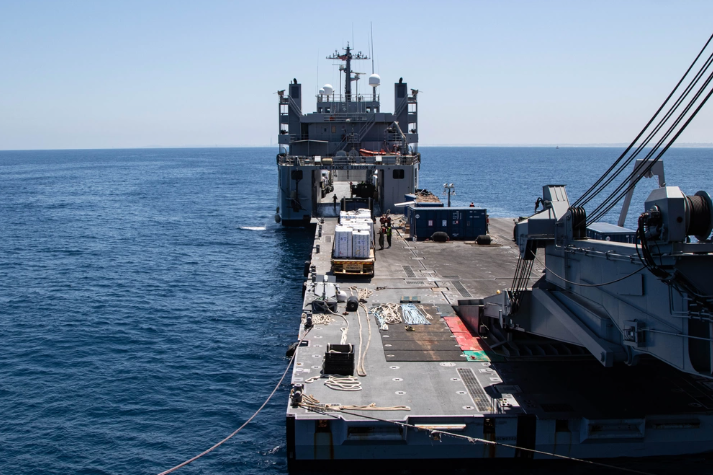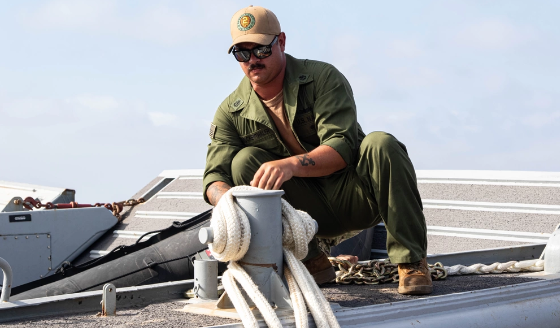
This week the U.S. Central Command (USCENTCOM) ended its mission to deliver humanitarian aid to the people in Gaza using the Joint Logistics Over the Shore (JLOTS) dock and pier project.
The project, announced by President Biden during his March 7 State of the Union Address, has been politicized, condemned and maligned from the very start.
It has been described as a “$230 million boondoggle,” “a national embarrassment,” “a political stunt,” “an election-year gimmick,” “an epic failure.”
But it has also been called a success, “the best hope,” “an unprecedented operation” that delivered 20 million pounds of desperately needed supplies — enough aid to feed 450,000 people for a month – to men, women and children who were on the brink of famine.
To the credit of CENTCOM, the JLOTS dock and pier were completed only sixty-seven days after President Biden announced the project and at a cost lower than was originally expected.
Interestingly, humanitarian and aid organizations have voiced both praise and skepticism over the project.
As usual, the truth about the JLOTS Gaza pier project lies somewhere in between.
Yes, during its short existence the pier has been fraught with mishaps, accidents and security concerns in what is an active war zone.
Its precious humanitarian aid was looted several times. The pier has been opened, closed, opened again, moved for repairs and for protection from poor weather and sea conditions repeatedly.
Since it was declared mission-ready two months ago, it has been fully operational for fewer than twenty-five days after its installation on May 16.
Yet, in the opinion of many, the JLOTS capability has enabled the delivery of “the highest-ever volume of U.S. military-supported aid in the Middle East.”
U.S. Navy Vice Adm. Brad Cooper, deputy commander of CENTCOM, stated that JLOTS achieved its intended goal “to surge a very high volume of aid into Gaza…at a critical time when other routes were challenged. If not delivered via the pier, this critical aid would likely not have been able to reach the people of Gaza in acute need…”
In addition, JLOTS has enabled the development of Cyprus as an inspection and staging port and has laid the groundwork for future aid deliveries to take place directly into the Israeli port of Ashod in full cooperation with the Israeli government and military.
“In the coming weeks, we expect that millions of pounds of aid will enter into Gaza via this new pathway,” Admiral Cooper said.
Regardless of whether one thinks JLOTS was a success or a failure, our nation owes respect and gratitude to the more than 1,000 U.S. soldiers and sailors who installed, operated and maintained the pier; who lived and worked on boats far away from home under the most austere conditions; who were constantly exposed to danger in a treacherous war zone.

Did I say “controversial”?
The Gaza JLOTS is one more noble chapter in America’s storied tradition of selflessly rendering humanitarian aid in natural or human-caused disasters.
Nothing controversial about that!
















